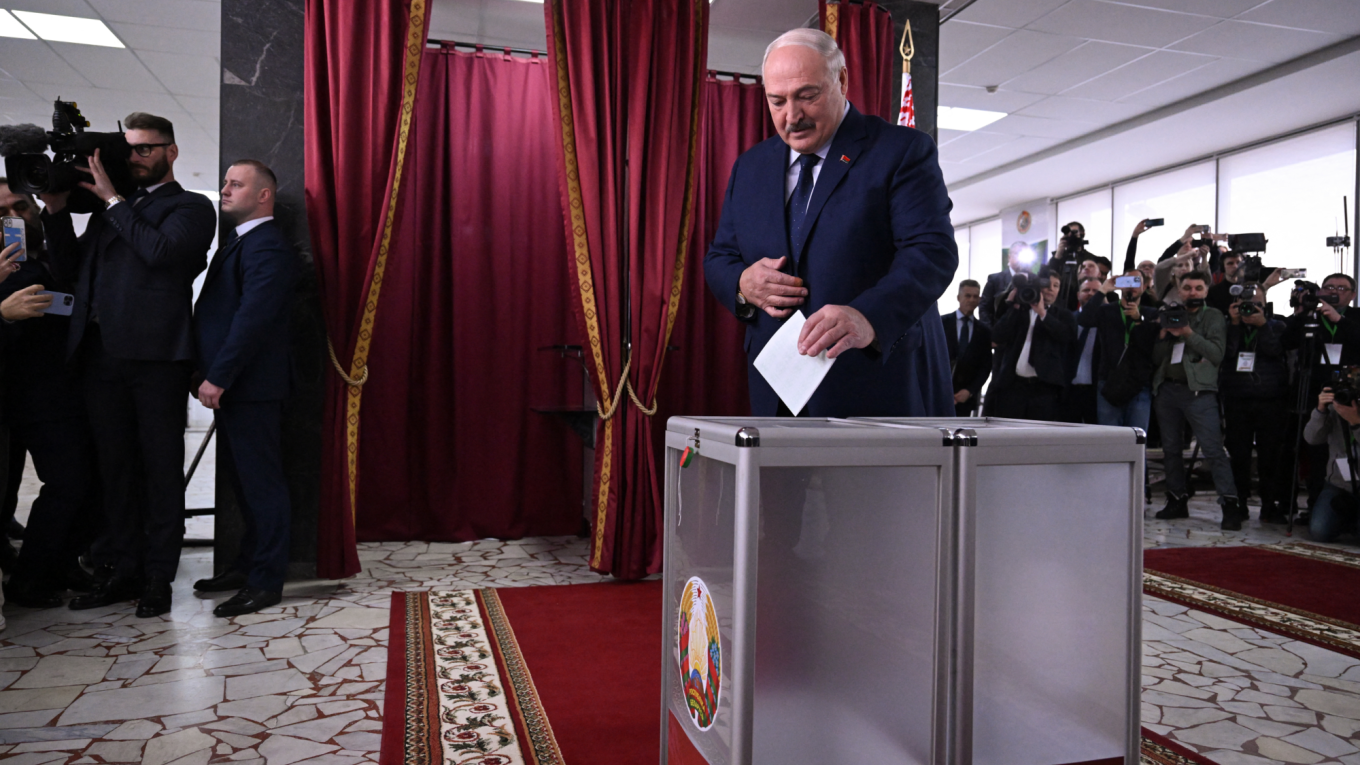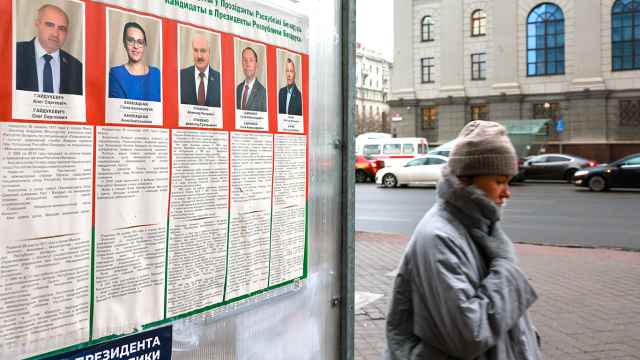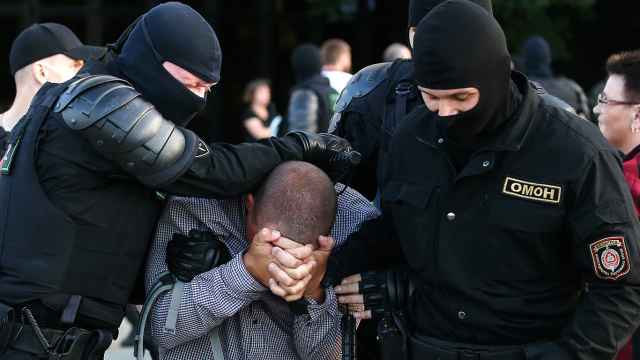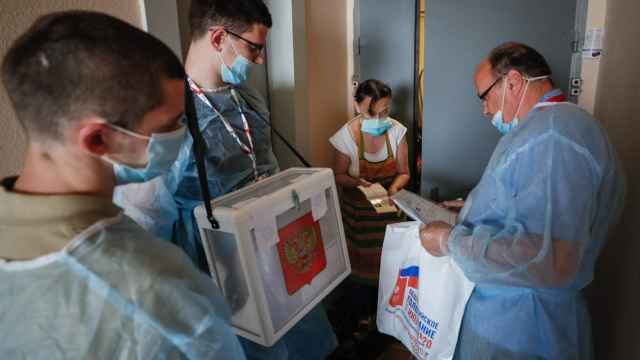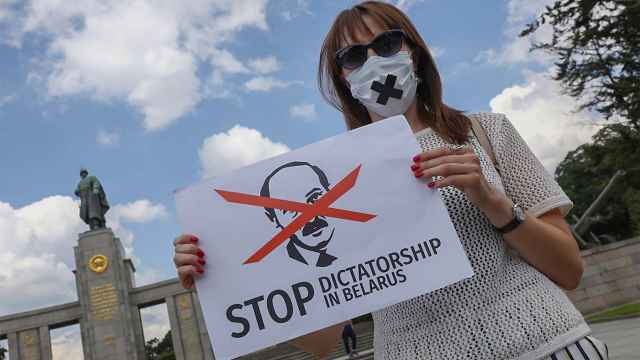Belarusians began voting on Sunday, with President Alexander Lukashenko expected to cruise to victory unchallenged for a seventh term, prolonging his three-decade authoritarian rule.
Lukashenko, a 70-year-old former collective farm boss, has been in power in reclusive, Moscow-allied Belarus since 1994.
Polls opened at 08:00 am local time in Minsk's first presidential vote since Lukashenko suppressed mass protests against his rule in 2020.
The opposition and the West said Lukashenko rigged the last vote and the authorities cracked down on demonstrations, with more than a thousand people still jailed.
All of Lukashenko's political opponents are either in prison — some held incommunicado — or in exile along with tens of thousands of Belarusians who have fled since 2020.
"All our opponents and enemies should understand: do not hope, we will never repeat what we had in 2020," Lukashenko told a stadium in Minsk during a carefully choreographed ceremony on Friday.
Most people in Belarus have only distant memories of life in the country before Lukashenko, who was 39 when he won the first national election in Belarus since it gained independence from the Soviet Union.
Criticism of the strongman is banned in Belarus. Most people AFP spoke to in Minsk and other towns voiced support for him.
The other candidates running against Lukashenko have been picked to give the election an air of democracy and few know who they are.
In Minsk, 74-year-old pensioner Nadejda Gujalovskaia, who described herself as a "patriot," voted for Lukashenko due to a lack of other options.
"Maybe everything here is not perfect, we don't have democracy," Gujalovskaia said.
The fate of Ukraine was also on her mind.
"I don't want a Maidan [uprising] here," she said, referring to the social unrest that erupted in Ukraine in 2013, eventually leading to the ousting of pro-Russian president Viktor Yanukovych.
That set Kyiv's new pro-European government on a collision course with Russian President Vladimir Putin, who in 2014 seized Crimea and then eight years later launched the full-scale invasion of Ukraine.
In 2022, Russian troops entered Ukraine from several directions, including from Belarus. The following year, Russia sent tactical nuclear weapons to the country.
The United Nations estimates that some 300,000 Belarusians have left the country since 2020 — mostly to Poland and Lithuania — out of a population of nine million.
They will be unable to cast ballots, with Belarus having scrapped voting abroad.
Exiled opposition leader Svetlana Tikhanovskaya denounced the vote as a "farce" in a January interview with AFP.
Her husband Sergei Tikhanovsky has been held incommunicado for almost a year.
She urged dissidents to prepare for an opportunity to change their country but conceded "it was not the moment."
In the run-up to the election, the Lukashenko administration pardoned around 200 political prisoners.
But former prisoners AFP spoke to say those released are under the close watch of security services and are unable to lead a normal life.
Nobel Prize winner Ales Bialiatski is among those in prison in Belarus.
While Lukashenko once carefully balanced his relations between the European Union and Moscow, since 2020 he has become politically and economically reliant on Russia.
Kaja Kallas, the EU's top diplomat, called the election a "sham" in a post on X on Saturday and said that "Lukashenko doesn't have any legitimacy."
Sometimes called "Europe's last dictator" — a nickname he embraces — Lukashenko has retained much of the Soviet Union's traditions and infrastructure during his time in power.
Unlike in Russia, the KGB security agency has retained its Soviet-era name and Belarus still uses the death penalty.
The country's economy is largely state-planned and Lukashenko scrapped Belarus's white-red-white flag in the 1990s — which has since become the symbol of the opposition.
Lukashenko prides himself on keeping the country's Soviet-era industries and agriculture enterprises in state hands.
In his speech on Friday, he spoke about the "pyatiletka" — or five year plan — an economic term used during the Soviet period.
A Message from The Moscow Times:
Dear readers,
We are facing unprecedented challenges. Russia's Prosecutor General's Office has designated The Moscow Times as an "undesirable" organization, criminalizing our work and putting our staff at risk of prosecution. This follows our earlier unjust labeling as a "foreign agent."
These actions are direct attempts to silence independent journalism in Russia. The authorities claim our work "discredits the decisions of the Russian leadership." We see things differently: we strive to provide accurate, unbiased reporting on Russia.
We, the journalists of The Moscow Times, refuse to be silenced. But to continue our work, we need your help.
Your support, no matter how small, makes a world of difference. If you can, please support us monthly starting from just $2. It's quick to set up, and every contribution makes a significant impact.
By supporting The Moscow Times, you're defending open, independent journalism in the face of repression. Thank you for standing with us.
Remind me later.


